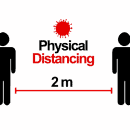The Popular ‘Aspirin’ Pill May You Harm More Instead Of Doing Good

Many people trust Aspirin to prevent stroke or heart attacks for more than 100 years. But research says that Aspirin isn’t completely safe, it may harm you too.
Aspirin is a very important medicine, although today’s users use it less frequently than they did ten years ago.
Despite the fact that aspirin has long been known to have a number of positive health effects, a recent study suggests that combining it with several well-known medications may have the opposite impact.
Some people’s lives may be saved by aspirin. Many individuals who have a history of heart disease, an ischemic stroke, a heart attack, or who have had a cardiac stent implanted to improve blood flow benefit greatly from the medication.
Also Read: Exercise Drug: Can This ‘Pill’ Strengthen Your Muscles Without Exercises?
But recent research indicates that you might not have to take a second blood thinner if you are currently taking one.
In fact, according to data from Michigan Medicine, patients who cease taking aspirin while taking a commonly prescribed blood thinner have a significantly lower chance of bleeding issues.
In Michigan, anticoagulation clinics treated almost 6,700 adults for both atrial fibrillation, an irregular heartbeat that increases the risk of stroke, and venous thromboembolism, or blood clots.
Patients received aspirin with addition to the usual blood thinner warfarin even though they had no history of heart disease.
Also Read: Johnson & Johnson To Stop Selling Talcum Powder Globally
Geoffrey Barnes, M.D., senior author of the study and a cardiologist at the University of Michigan Health Frankel Cardiovascular Center, says,
“We know that aspirin is not a panacea pill as it was formerly supposed to be, and can in fact contribute to increased bleeding episodes in some of these individuals.
So we worked with the clinics to minimize aspirin use among patients for whom it might not be necessary.”
The research intervention caused a 46.6% decrease in aspirin consumption among the participants. The likelihood of experiencing bleeding issues decreased by 32.3% with less aspirin use.
This indicates that one significant bleeding issue is avoided for every 1,000 patients who quit using aspirin. The open-access journal JAMA Network reports the results.
In Barnes’ words, who is also an associate professor of internal medicine at the University of Michigan Medical School, “there was already an effort by doctors to reduce aspirin use”
when they started this study, and their findings “show that speeding that reduction saves major bleeding consequences which, in turn, can be lifesaving for patients.”
Numerous studies that simultaneously examined the usage of aspirin and other blood thinners discovered some unsettling connections between the two.
One study found that patients with atrial fibrillation and VTE taking warfarin and aspirin experienced more severe bleeding episodes and needed more ER visits for bleeding than those taking only warfarin.
Patients who used aspirin and direct oral anticoagulants also experienced similar results; it was shown that they were more likely to have a bleeding episode but not less likely to have a blood clot.
Barnes continues, “Aspirin is an enormously important drug, but it has a less common role than it did a decade ago.
But each study shows that there are fewer and fewer instances of individuals who are already on an anticoagulant benefiting from the addition of aspirin to their regimen.
Already, the blood thinner they are taking is preventing some clot formation.
Also Read: Pomato & Brimato: Agricultural Innovation of 2 Vegetables On 1 Plant
Some people’s lives may be saved by aspirin. Many individuals who have a history of heart disease, an ischemic stroke, a heart attack, or who have had a cardiac stent implanted to improve blood flow benefit greatly from the medication.
The issue comes when certain people take aspirin without a history of cardiovascular disease and are simultaneously given an anticoagulant, according to the primary author Jordan Schaefer, M.D., a hematologist at U-M Health and clinical associate professor of internal medicine at U-M Medical School.
According to Schaefer, many of these people were likely taking aspirin for the primary prevention of heart attack or stroke, which is now proven to be less effective than previously believed. When they started taking warfarin, nobody stopped them.
These findings emphasize the need of not just taking aspirin on your doctor’s advice but also the need for care team consultation before starting any over-the-counter drugs, such as aspirin, to assess whether the benefit exceeds the risk.



